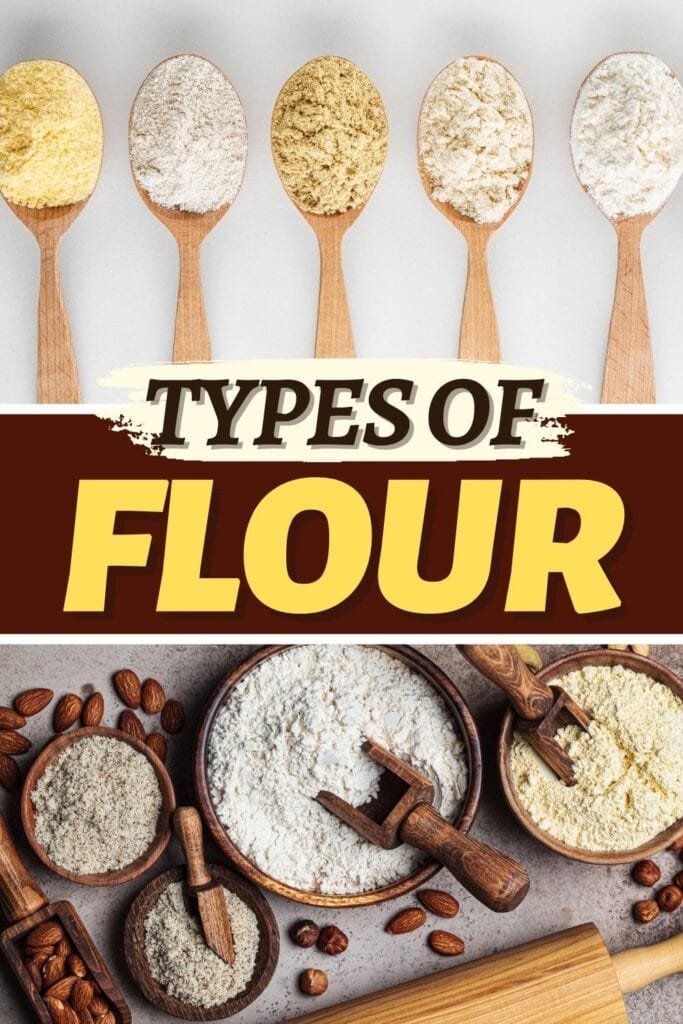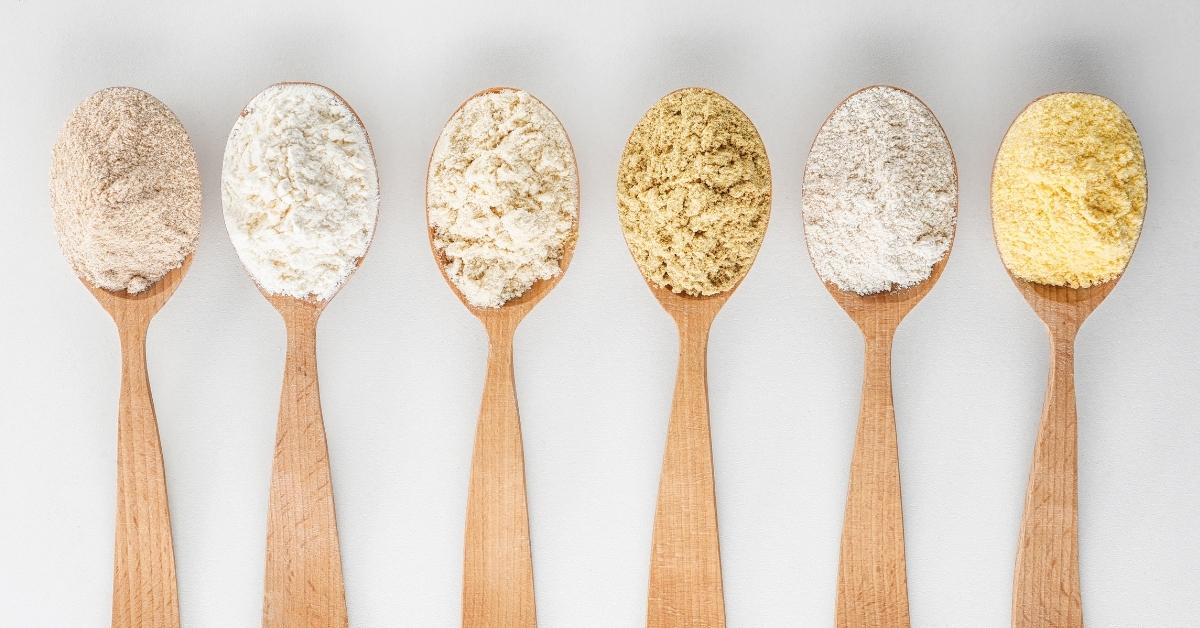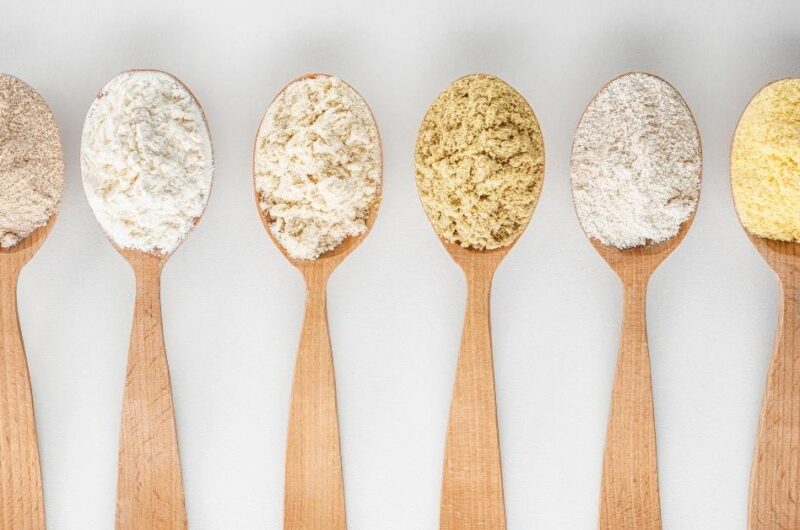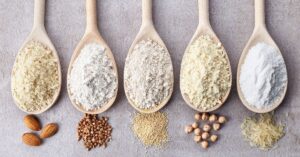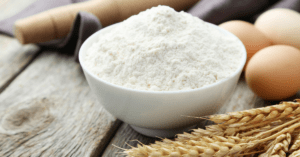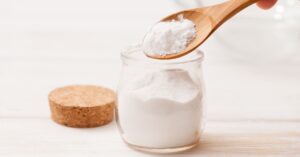Whether you’re a baker or a home cook, it’s important to know the many different types of flour.
No need to get overwhelmed, this blog post has you covered.
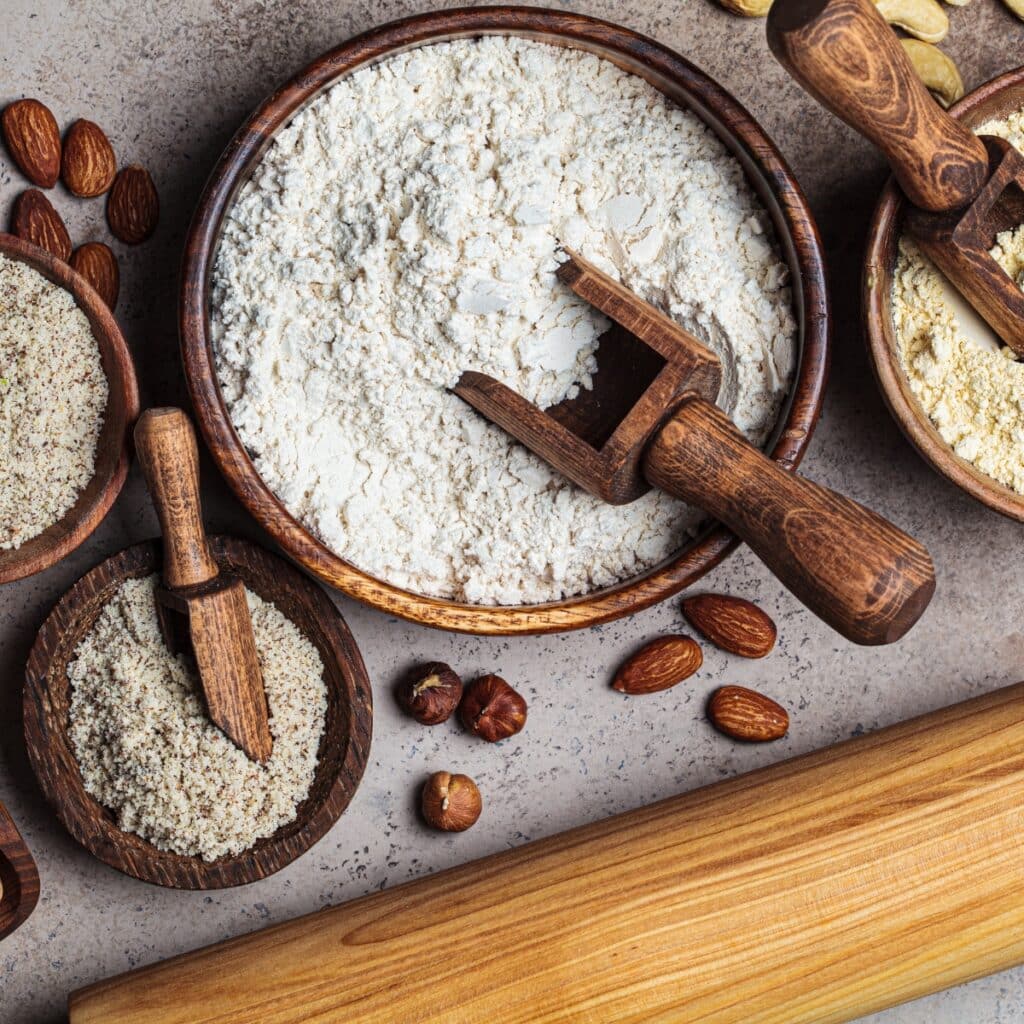
If you think there are only a couple of types of flour that fit all recipes, think again.
There’s wheat, gluten-free, nut, coconut, 00 flour, and more. (Check out my “What is 00 flour?” post if you’re curious about that one.)
And each has specific characteristics and functions.
I’m sure you’ve heard of and used all-purpose flour. And maybe bread flour.
But that’s not the end of the list. So let’s take a deep dive!
Types of Flour Every Baker Should Know
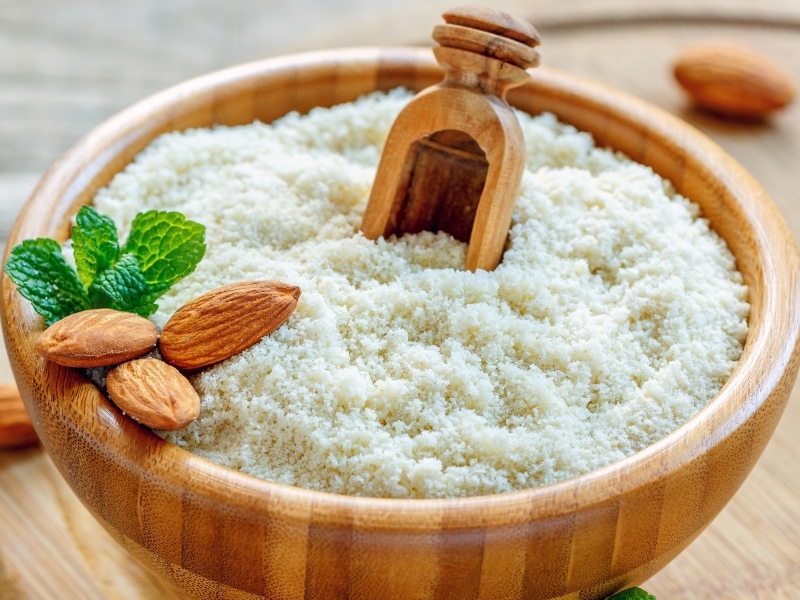
1. Almond Flour
Almond flour is quickly becoming a must-have in the pantry of any health-conscious person.
It’s packed with healthy fats, fiber, plant-based protein, and various vitamins.
Almonds have been touted as a superfood for years, and now we get to enjoy them in flour form!
Almond flour is a fantastic alternative to regular flour for baking and cooking.
It can be used in almost anything like muffins, brownies, pancakes, and even pasta.
It’s naturally gluten-free, making it an ideal option for those on restricted diets.
It’s also a great swap if you’re looking to reduce carbs or calories while still enjoying all the flavor.
And to top it off, almond flour is incredibly easy to work with.
Try using it today and see how much healthier your baked goods become.
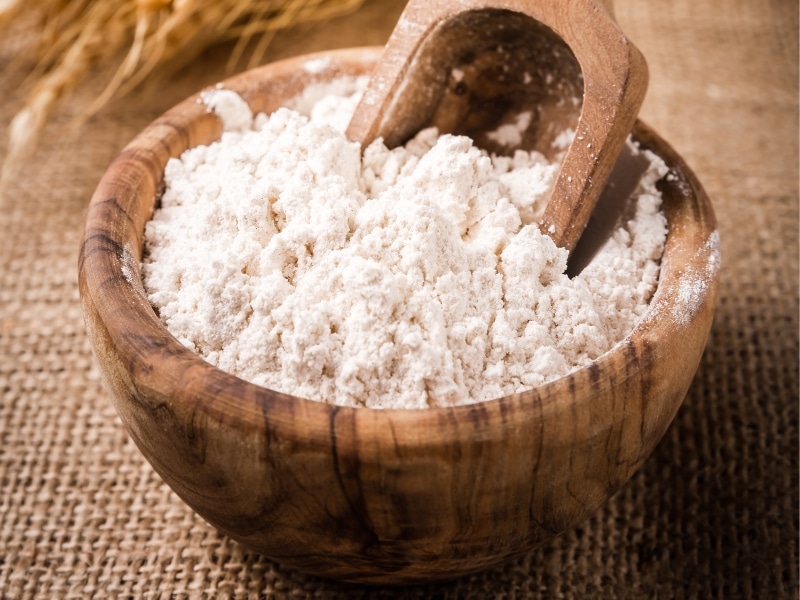
2. Whole Wheat Flour
Whole wheat flour is a healthy and delicious substitute for all-purpose white flour.
You really can have your cake and eat it too!
Whole wheat flour is a staple in many healthy kitchens, and for good reason.
Not only is it made from 100% whole-grain wheat, but it typically has more fiber, protein, and vitamins than refined white flour.
It’s incredibly versatile as well.
Whole wheat flour can be used to make anything from waffles and pancakes to pizza dough and fresh pasta.
It makes muffins and cakes healthier while providing that classic flavor we know and love.
To make the switch, replace half of the all-purpose white flour in your favorite recipe with whole wheat.
You’ll be amazed at the wonderful texture it adds while possibly reducing your chances of cardiovascular disease.
Living a healthy lifestyle has never tasted so good.
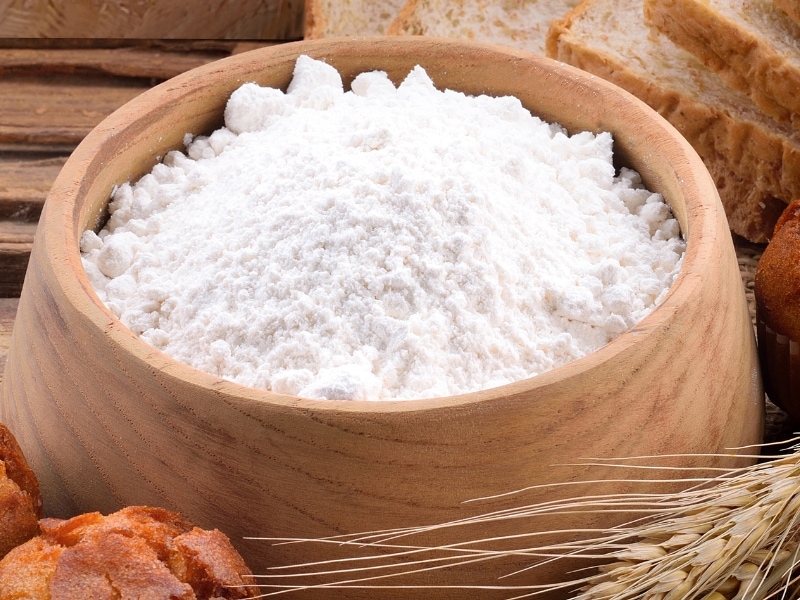
3. All-Purpose Flour
All-purpose flour is the baker’s savior!
This pantry essential is your go-to ingredient for almost any baking application.
From cakes to cookies to bread and pizza dough, all-purpose flour is a great choice.
It’s so versatile, it can even be used when making pancakes, waffles, and batter-coated dishes.
And because it has a good balance of protein and gluten content, all-purpose flour makes an ideal base for any recipe.
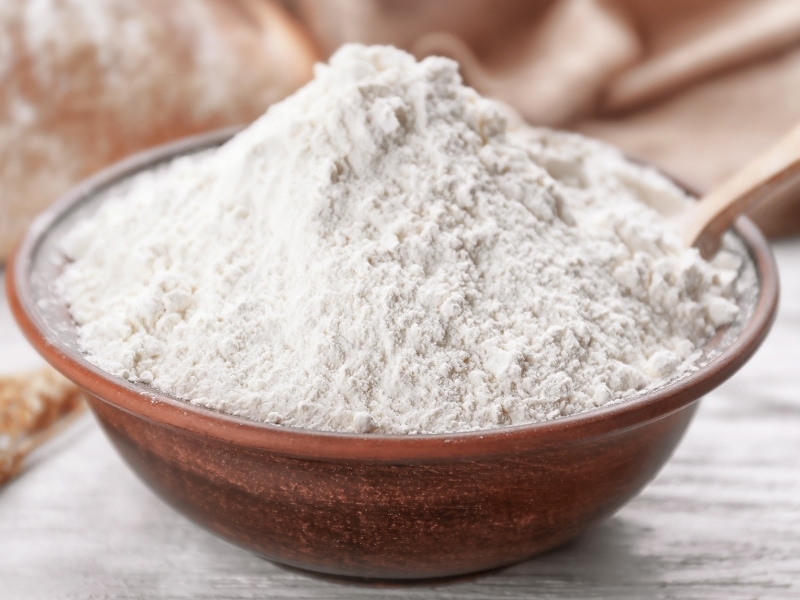
4. Bread Flour
Bread flour is a special type of flour created specifically for baking (bread, in particular).
It’s derived from hard wheat, which has higher protein content than all-purpose flour.
Bread flour is one of the most important ingredients for making homemade bread.
Whether you want to bake classic French bread or a more rugged sourdough, bread flour guarantees that you’ll be off to a good start.
It can take some practice to get your loaves just right.
But having quality bread flour on hand ensures that you’ll get delicious results every single time.
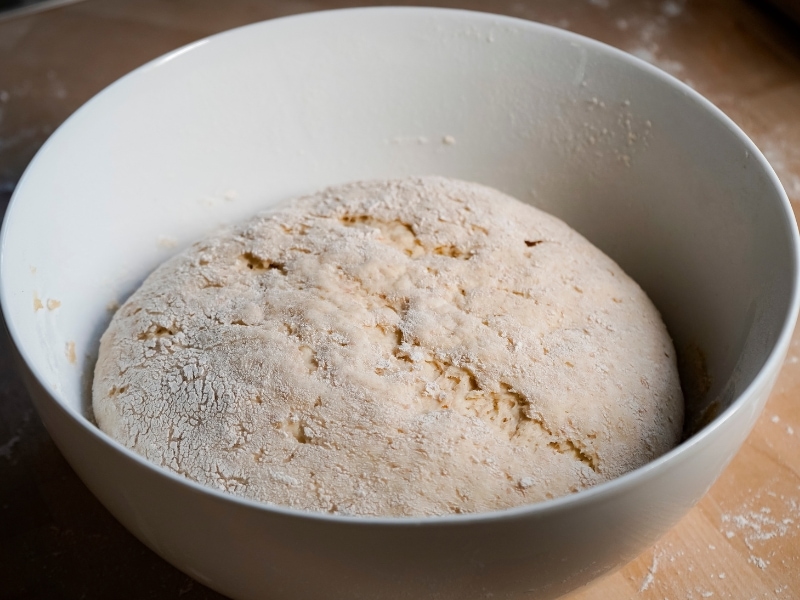
5. Self-Rising Flour
Making baked goods just got a lot easier with self-rising flour!
This special type of flour is a great alternative to all-purpose if you don’t want to burden yourself with adding baking powder and salt.
All you have to do is swap your normal flour measurements with self-rising flour.
The result will be light and fluffy cakes, scones, biscuits, and every other baked good imaginable.
Self-rising flour has revolutionized the baking landscape.
It allows budding bakers or busy home cooks to whip up simple yet delectable treats.
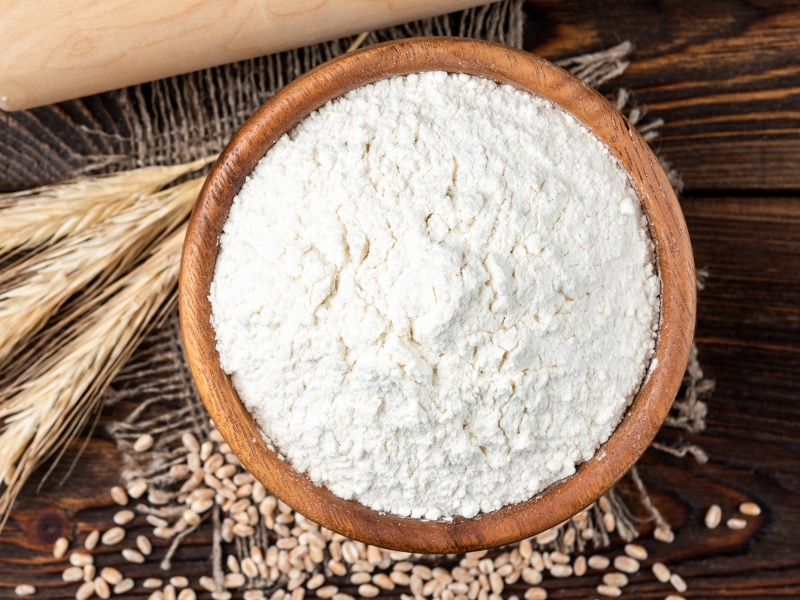
6. White Whole Wheat Flour
White whole wheat flour is the perfect solution for any baked goods lover looking for a healthier alternative.
It’s made from hard white winter wheat and has a nutty flavor and the same light texture as all-purpose flour.
But it’s loaded with more fiber and nutrients due to the bran being left in.
When baking, white whole wheat flour can be substituted one-for-one in recipes that call for all-purpose flour.
However, it absorbs liquids differently so keep an eye on your dough or batter and add more liquid, if necessary.
You might also need to add extra rising agents like baking powder or yeast to your recipe.
The germ found in white whole wheat flour gradually converts starches into sugar and weakens dough over time.
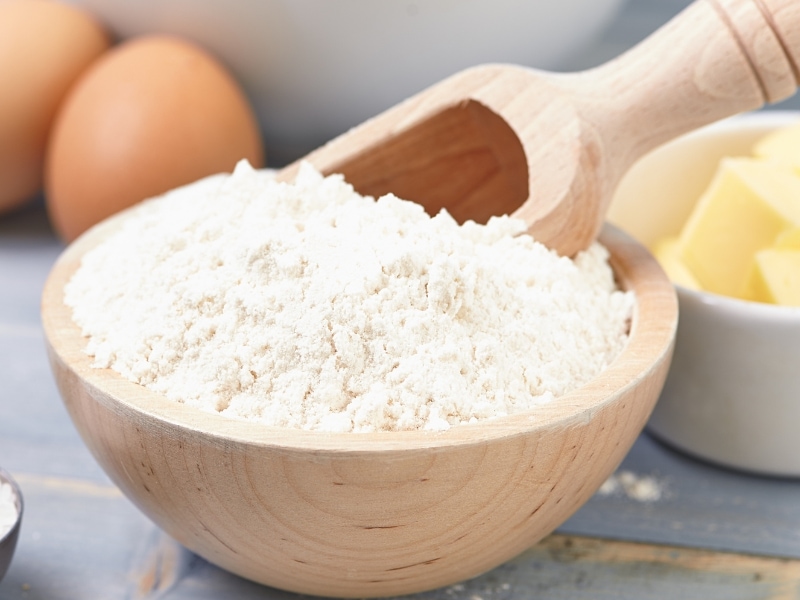
7. Cake Flour
The secret to light, airy, and delicious cakes? What is cake flour, Alex!
Unlike all-purpose flour, cake flour is much finer, so it helps prevent your cakes from becoming tough and chewy.
It also has a lower protein content than all-purpose flour, which helps produce a crumb that’s free of large voids or empty bubbles.
Using cake flour brings an extra level of deliciousness to your baking creations.
The next time you bake a cake, reach for a bag of cake flour.
It’ll be the best decision you ever make in the kitchen.
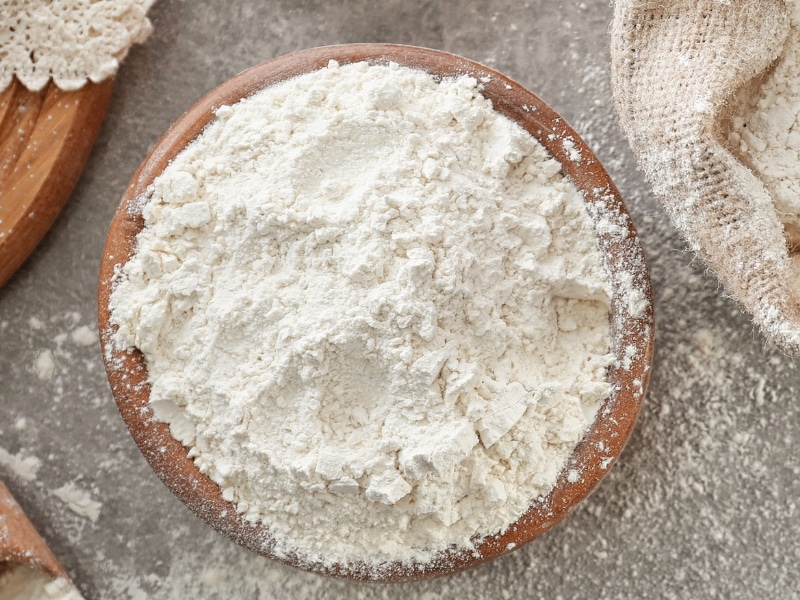
8. Pastry Flour
Pastry flour is a fun baking option for those looking to add a little something special to their next treat.
The lower protein content, compared to all-purpose flour, gives it a lighter texture and finer crumb.
It’s perfect for creating flaky pastries like puff pastries, shortcakes, and scones.
Many cake recipes call for all-purpose flour.
But you’ll find the results are much fluffier and more enjoyable when using pastry flour.
Keep some on hand in your pantry so you’re always ready to whip up something awesome!
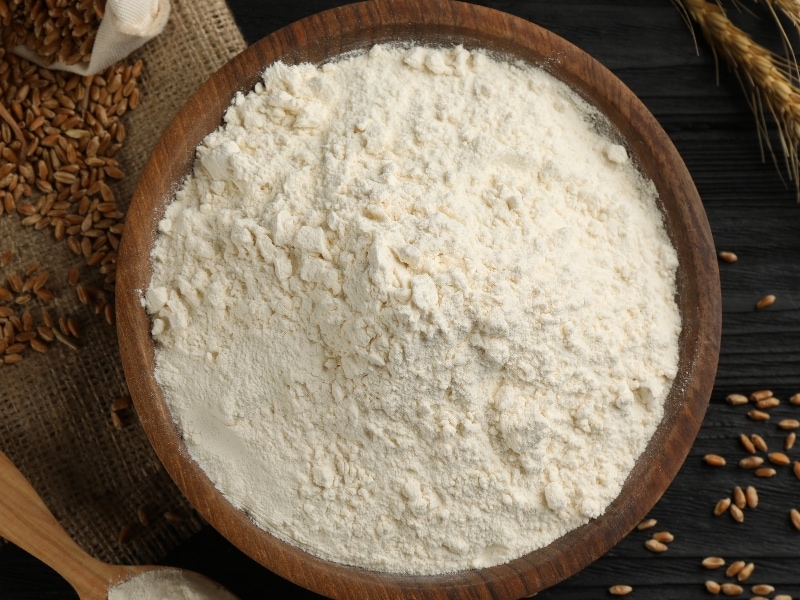
9. Vital Wheat Gluten Flour
Vital wheat gluten flour is a vegan-friendly wonder ingredient that can take your baking game to a whole new level!
It’s packed with protein and gives you an amazingly satisfying texture for all your bread, pastries, and even steamed dishes.
With some practice, you’ll be able to make soft buns, layered cakes, and even firm chewy dumplings, without breaking a sweat.
Don’t let strange-sounding ingredients get in the way of trying something new.
Remember that vital wheat gluten flour could take your dishes from delicious to downright magical!

10. Gluten-Free Flour
For baking enthusiasts, the introduction of gluten-free flour has opened up a whole new world of possibilities.
Now, people with gluten intolerances or Celiac disease can enjoy treats that were formerly off-limits.
Gluten-free flour comes in a variety of grain and nut-based varieties.
This means that bakers have an incredible range of textures and flavors to work with.
There are some tried-and-true recipes out there that can help those new to gluten-free baking get started, so dive right in!
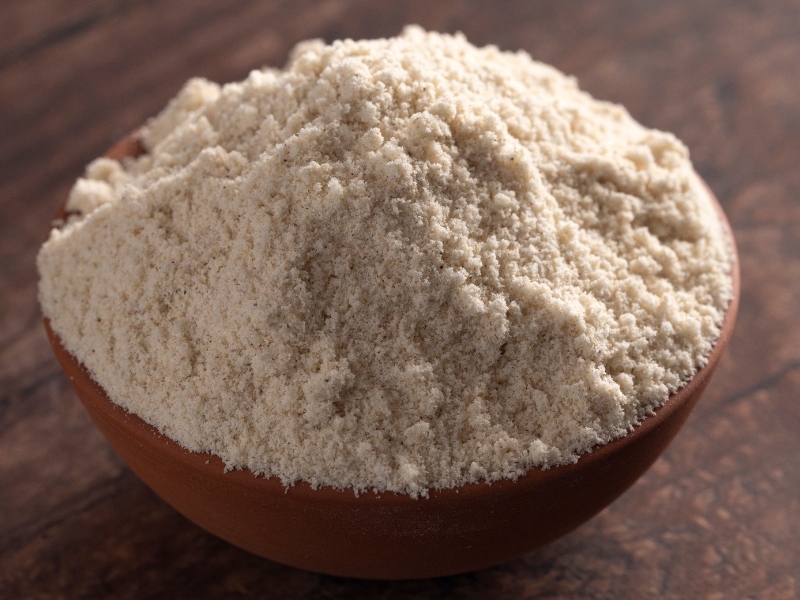
11. Sprouted Flour
Sprouted flour is fast becoming a popular alternative in the kitchen due to its tremendous health benefits.
This super flour is made of germinated grains and packs an incredible nutritional punch.
Thanks to increased vitamin and mineral levels, it’s a smart way to bring more nutrients into your diet.
Sprouted flour also makes for a tasty bake.
You won’t believe how delicious your bread, muffins, and cakes come out when you make them with sprouted flour!
Plus, since it has less sugar than regular processed flour, you won’t have to worry about too many post-consumption guilt trips.
If you’ve been considering switching to a healthier type of baking ingredient, look no further than sprouted flour!
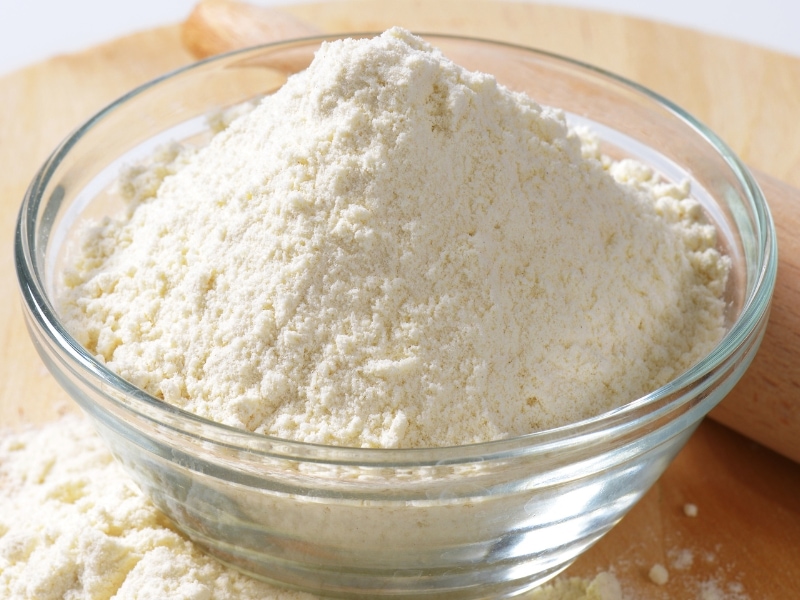
12. Bleached Flour
Bleached flour is made by whitening all-purpose flour with chemicals like chlorine gas, benzoyl peroxide, and/or acids.
These chemicals act as bleaching agents to chemically remove the yellow and gray components of the flour and create white flour.
Don’t worry, though.
Even though this process sounds medically unsafe, it’s actually been approved by the FDA.
But why bleach in the first place?
Well, it affects how quickly bread rises, plus provides an attractive visual appearance to baked goods.
The results? Incredibly soft and fluffy bakes that even put store-bought goods to shame!
However, note that bleached flour often lacks the same nutritional value as unbleached flour.
All the chemical treatments wear down essential vitamins and minerals. Be sure to use it in moderation.
